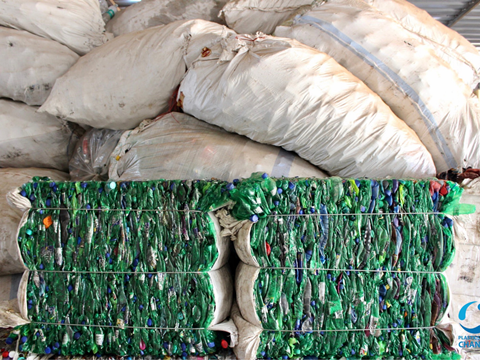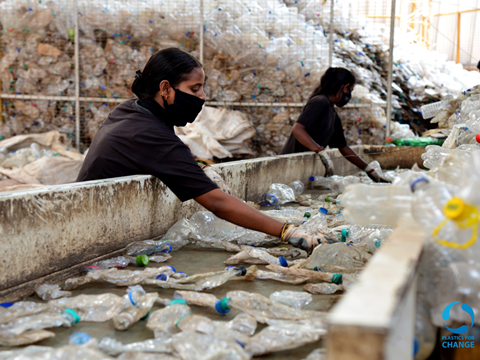
The global pandemic has given the world a rare chance to reflect and rethink its actions. It has given an opportunity to reverse the damage we’ve done to the planet and building back the plastics circular economy will be a crucial part of this. Doing so however, will require an overhaul of how businesses approach the process. In an exclusive piece for Packaging Europe, Plastics For Change, whose mission is ‘to use plastic waste as a resource for addressing social issues’, considers how we can go about this.
The Pandemic
COVID19 has reinforced our reliance on plastic. Being a part of essential personal protection equipment (PPE) and medical gear, plastic use has surged over the past few months, leading to an increase in waste and adding to an already mounting global waste crisis.
The recycling industry has also been hit hard, with the recent lockdowns crippling informal waste economies in emerging economies. Waste pickers in countries like India, numbering over 1.5 million, have lost their livelihoods and now entire communities are at risk of starvation. Even with the gradual relaxation of lockdowns, health and safety issues plague these highly unregulated systems. Their fate therefore, seems entwined with the development of the plastics circular economy.
This will require a paradigm shift in the decision-making of businesses worldwide.
The Current Approach
Although many have made commitments towards being sustainable, very few have achieved measurable results. Not one among the top ten (by revenue) FMCG companies have reached 10% in recycled content and the disconcerting reality is that current circumstances could lead to more backtracking. The record low price of oil has seen virgin plastic become cheaper, which could see brands forgoing their sustainability commitments, in favor of bettering their bottom-line. Plastic production is expected to grow by 40% by 2030 and experts suggest that it will be responsible for 13% of the total carbon budget by 2050.
This ‘business as normal’ approach cannot hope to sustain itself with the increase in regulatory enforcement through Extended Producer Responsibility laws. However, it’s the consumer outrage that will likely incentivize businesses to adopt more responsible practices.

Consumer Response
Consumers have begun to expect that businesses reflect their values, with nine-in-10 being more likely to purchase from brands that are purpose-driven. The current crisis has made the world realize how connected it is and has deepened its drive to do better. Businesses therefore have the opportunity to make decisions that resonate with their consumers, positively impacting their bottom-lines along with helping the planet.
With supply chains coming back online, business leaders have the opportunity to build back better and adopt more sustainable practices while re-imagining the way they do it.
Re-imagination and Innovation
The barriers for those considering a transition to sourcing recycled plastic have included questions regarding its quality coupled with the often unethical nature of supply chains and the general ‘newness’ of the industry. While valid, seeing these barriers removed would require businesses to support innovation in the industry and take actionable steps towards fulfilling and expanding their recycling commitment.
Senior leadership at these businesses would need to buy-in to the process, if this is to work. Shifts in approaches like switching from category-based buying to product SKU-based buying may have to be considered and even identifying products that may be ‘low-hanging fruit’ to start with. Plastics For Change (PFC), with its innovative marketplace platform, works towards helping businesses with making these decisions and switching to recycled plastic.
By creating fair-trade verified and high-quality supply chains, Plastics For Change enables its industry partners to achieve their recycling goals while simultaneously helping waste pickers have better livelihoods and access to healthcare, education and financial literacy through social initiatives. More such innovation is the need of the hour and it would require business leaders to take ownership of the process.
The window for reflection is narrowing. The steps taken in this decade will be crucial if we are to effectively reverse the damage caused by plastic. Businesses have the opportunity to take leadership in this cause and build a plastics circular economy that will ensure consumer loyalty, develop livelihoods in the global south and make a tangible difference in the future of the planet.















